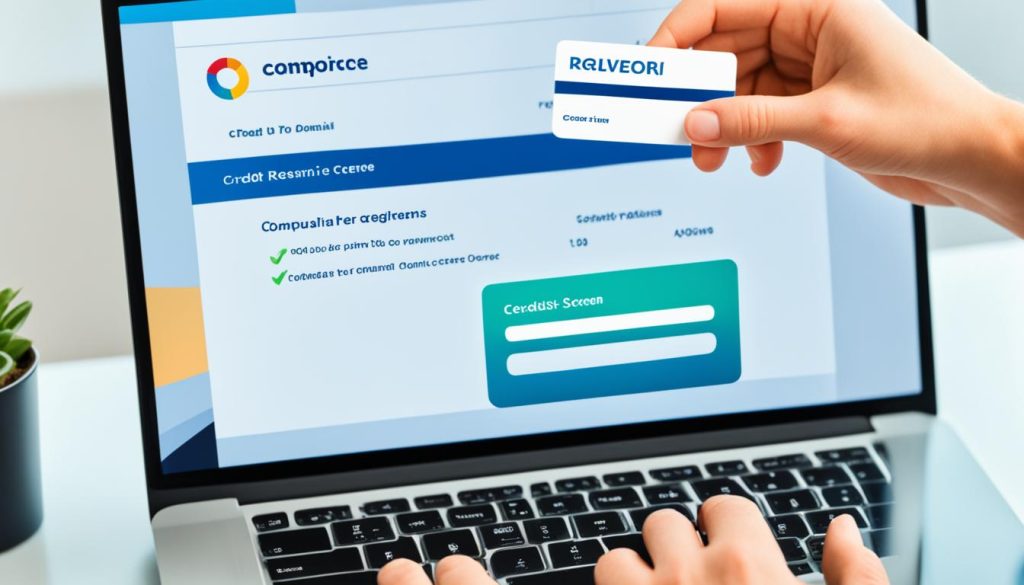Are you looking to create a professional website for your business? Whether you’re a beginner in website design or want to build a website from scratch, this step-by-step guide is here to help. With the right website builder and useful website creation tips, you can easily establish an online presence for your business. Let’s dive in and explore the world of web development.
Creating a website may seem daunting at first, but don’t worry, we’ll break down the process into easy-to-follow steps. From registering a domain name to choosing a hosting provider and selecting the right website builder, we’ve got you covered.
Throughout this tutorial, we’ll provide you with valuable website building guides and share beginner-friendly website design techniques. Whether you’re in the UK or anywhere else in the world, these tips will help you create a website that suits your business needs.
So, let’s get started on your journey to building an impressive and user-friendly website that showcases your business effectively. Follow along the sections below to learn the necessary steps to create a website for your business.
How to Make a Website for Business?
Buy a Domain Name
The first step in creating a website is to buy a domain name. Your domain is your website address and it should be easy to remember and closely related to your trading name. It’s recommended to buy a domain as soon as you register your business name, even if you’re not ready to build a website yet.
You can buy a domain name in the UK through low-cost providers like GoDaddy, 123 Reg, and 1&1 IONOS. These domain name providers offer a wide range of options and services to suit your needs. Consider using top-level domains like .com and .co.uk for added authority and trust.
When buying a domain name, it’s important to be aware of data protection and website privacy laws. Ensure that the domain registration process complies with the regulations in the UK to protect your business and customer data.

| Domain Name Provider | Top-Level Domains |
|---|---|
| GoDaddy | .com, .co.uk, .org, .net, and more |
| 123 Reg | .co.uk, .uk, .com, .info, .org, and more |
| 1&1 IONOS | .co.uk, .uk, .com, .org, .net, and more |
Decide the Purpose of Your Business Website
Once you have registered your domain, it’s important to determine the main purpose of your business website. This will help you create a website that effectively meets your goals and serves your target audience. Consider the following options:
- Showcase your portfolio: If you are an artist, designer, photographer, or any other creative professional, a website can be an excellent platform to showcase your work. You can create a visually appealing gallery or portfolio page where potential clients can browse through your projects and get a sense of your skills and style.
- Have a blog: Maintaining a blog can be a great way to establish yourself as an authority in your industry and attract a loyal audience. You can regularly publish informative and engaging content related to your business niche, share your expertise, and provide valuable insights to your readers.
- Highlight your services: If you offer specific services, your website can serve as a platform to highlight them and attract potential clients. You can create dedicated pages for each service, outlining the benefits and showcasing examples of your work. Additionally, you can include testimonials or case studies to build trust and credibility.
- Sell products: If you are looking to sell products online, you’ll need a website with ecommerce functionality. This will allow you to create an online store, add product listings, manage inventory, and enable secure online payments. An ecommerce website can expand your reach and provide a convenient platform for customers to purchase your products.
To achieve your website goals, choose a website builder with ecommerce functionality that can accommodate the specific requirements of your business. Make sure the builder provides customizable templates, easy-to-use design tools, and seamless integration with payment gateways.
By deciding the purpose of your business website upfront, you can create a focused and effective online presence that aligns with your goals and engages your target audience.

Find a Hosting Provider
After registering your domain, you need to choose a hosting provider that will store your data and make it available on your domain. When selecting a hosting provider, there are several key factors to consider:
Storage Limits
Consider the amount of storage space provided by the hosting provider. Ensure it meets your website’s needs, especially if you plan to have a large number of files, such as images, videos, or downloadable content.
Bandwidth
Check the bandwidth allocation of the hosting provider. Bandwidth determines the amount of data that can be transferred between your website and its visitors. Make sure it is sufficient to handle the expected traffic and prevent slow loading times or disruptions.
Costs
Compare the costs of different hosting providers. Take into account both the initial sign-up fees and the ongoing monthly or annual charges. Consider any additional costs for features like domain privacy or technical support.
SSL Certificate
Ensure that the hosting provider offers the option to enable an SSL certificate for your website. An SSL certificate encrypts data transmitted between your website and its visitors, providing a secure browsing experience. Some hosting providers include SSL certificates as part of their packages, while others may require additional setup.
Content Management Systems
Find out what content management systems (CMS) the hosting provider supports. Popular CMS options include WordPress, Joomla, and Drupal. Select a hosting provider that offers compatibility with your preferred CMS for ease of website management.
Data Protection and Website Privacy Laws
It is essential to understand how a hosting provider protects your data and complies with website privacy laws. Look for providers that prioritize data security and adhere to relevant regulations to safeguard your website and user information. Familiarize yourself with website privacy laws in your jurisdiction to ensure compliance.

Choose a Website Builder
When it comes to building a website, you don’t need to be a professional designer or web developer. Thanks to the availability of website builders, you can create your own website easily and efficiently. Whether you’re looking for a free option or willing to invest in a paid solution, there are various website building platforms to choose from.
Website builders typically offer a user-friendly interface with drag and drop components, allowing you to seamlessly add elements to your website. These components include contact buttons, enquiry forms, photo galleries, and even videos. You can customize your website to match your unique brand and business requirements.
There are several popular website builders available in the market that have gained a reputation for their user-friendly features and versatility. Some of these include:
- WordPress
- GoDaddy
- Wix
- Squarespace
- Zyro
- Zoho
- Shopify
Each website builder offers its own set of features and benefits, so it’s important to choose one that aligns with your needs and goals. Take your time to explore these options and consider factors such as ease of use, design flexibility, and integration capabilities. With the right website builder, you’ll have the tools to create a professional and visually appealing website for your business.

Conclusion
Establishing an online presence is crucial for the success of any business in today’s digital age. A well-designed website not only enhances your credibility but also helps you reach a wider audience and attract potential customers to your products or services. By following the step-by-step guide provided in this article, you can easily create a professional website for your business.
Website builders offer user-friendly platforms that simplify the process of website creation. They allow you to customize your website design and layout according to your preferences, without the need for coding knowledge. Additionally, you can register a domain name that aligns with your business and choose a reliable hosting provider to ensure your website is accessible to visitors.
It’s important to optimize your website for search engines by incorporating relevant keywords, meta tags, and high-quality content. This will enhance your online visibility and improve your website’s ranking in search engine results, driving more organic traffic to your site. Additionally, providing valuable content and a seamless user experience will keep visitors engaged and encourage them to explore your offerings.
With the right tools and strategies, you can create a professional business website that effectively represents your brand and helps you achieve your goals. Start building your online presence today and unlock the potential for business growth and success.
FAQs
Why is it important for businesses to have a website?
A website is essential for businesses to establish an online presence, attract potential customers, and showcase their products or services.
What should be the main purpose of my business website?
Your website’s purpose depends on your business goals. You can use it to showcase your portfolio, have a blog, highlight your services, or even sell products through an ecommerce functionality.
What are some popular website builders I can use?
There are many website builders available, such as WordPress, GoDaddy, Wix, Squarespace, Zyro, Zoho, and Shopify. These website builders have drag and drop interfaces, making it easy to add components like contact buttons, enquiry forms, photo galleries, and videos.





